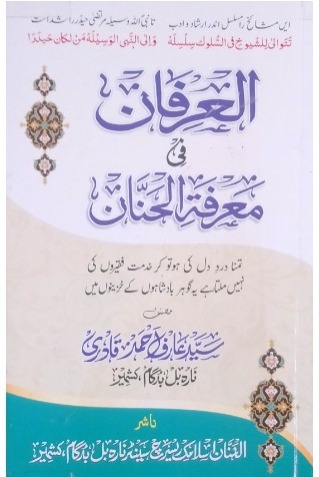By: Prof. Bashir Ahmad Dar
During the recent years an ode (Ghazal) has hit almost every household and everyone, young and old, men and women, murmur it often; the song is “Yare gachav diwayae”(My beloved let us go to see the fair). The verses are of the famous Sufi poet of Kashmir Known as Habibullah Nowsheri who lived during the medieval period. He had Hubbi as his pen name.
He was born in 962 Hijra at Nowsher Srinagar and breathed his last in 1027 Hijra (1617A.D). He was the illustrious son of Shams Ud din Ganie, who also became his first teacher in religious as well as traditional learning. He learnt from Mullah Hassan Afaqi and later on Mir Mohammad Khalifa became his Murshid (Spiritual guide). The latter was the disciple of Jami ul Kamalat Hazrat Ishan Shiekh yaqoob Sarfi (R.A.). Hubbi (R.A) then completed his advance studies under Shaikh Yaqoob Sarfi (R.A.). In the praise of his Sufi master, Hubbi wrote:
Bi Ya Hubbi me go degar fasana
Bigo awsaf aan peer i yagana
Shanshahi be mulki murshidi keist
Fur o naam o nishan hum bigo chiest
Ze hei peer I ki ameer o dasht mehboob
Buod naami sharefesh Shah I Yaqoob
Khawaja Habibullah Nowsheri was a well-read Sufi of his times. He had memorized Quran in his very childhood and became a Hafiz. He exhibited great sharpness in other branches of knowledge and arts as well. He studied Fiqh, Hadith, knowledge of principles, Persian language and literature and was among the distinguished scholars of Kashmir.
In fact it may of interest to note here that many of his contemporaries in the medieval Kashmir were first known as the religious luminaries before turning to Sufism. We may quote the instances of Hazrat Mehboob ul Alam Shiekh Hamza Makhdoom (R.A.), Sheikh Yaqoob Sarfi (R.A), or Mir Syed Shah Qasim Haqani (R.A.), almost all of them were well versed with the religious tenets. This is in contrast to the modern scenario wherein some of those who claim to be the Sufis are actually devoid of the knowledge of the Shariah.
These revered Sufis opened the doors of the house of Shariat, treaded the path of the Sufism (Tariaqat) to reach the zenith of the Maurfat, and they were successful in realising the ultimate Truth (Haqiqat). It was their experiences with Islam that led them to the vistas of Tasawuf or Ahsaan as it has been called in the Hadith.
But it may be of interest to note here that it was not just the lips of these Awaliya or those being nearer to Allah who would recite the Quran but they adopted it as their way of life. It was the code that would govern their relations with the fellow beings and also in their professions. Most likely it was under this influence that although a trader, he would desist from weighing or measuring the goods he would sell; instead asked the customers to do it themselves.
He has referred in his verses of his profession as a trader. The verse is that he (Hubbi R.A) is a trader of Nowsher, though he has ninety nine items (almost everything) in his shop but he knows nothing of the tradesman ship. But like the other Sufi poets the verse besides indicating his profession refers to something else.
The Sufis as a matter of fact, following the Sunnah, would express their humility. Though they had an excellent position (Muqam) in the sphere of Tasawuf, but they would try their best not to make a show of it or boast over it. Thus Hubbi (R.A.) expresses that he did not know an iota of the trade, Hazrat Amir i Kabir Mir Syed Ali Hamdani (R.A.) expresses the same sentiment, in a verse, that
If the Brahman peeps into my (inner) condition
He will turn me out of his sight;
In that he would not allow a wicked man like me to present
Myself before the idol.
Besides a veteran Sufi, Hubbi was a writer of immense significance of his times. His versatility as a learned luminary is reflected in his writings too. He has many books to his credit, mostly in Arabic and Persian besides his Kashmiri poetic compositions. These include Tanbhiyal Quloob, Rahatul Qaloob, Miratul Gayoob, Risalatul Insaf, Maqamati Hazrat Ishan (R.A.). In addition he has authored a Persian Diwan and Qasaid. His Dewan is a specimen of fine poetry, written in simple style and short metre, replete with fine ideas finely put and shows the originality and freshness of his imaginative mine. The main theme of his writings and poetry is Sufism and Irfan (to know Allah).
He was master in the art of composing chronograms of the Prophet (SAW), his Caliphs (RA) and other notables of Islam. Risalatul Insaf is a book on Tasawuf in Arabic language, dealing with the attributes of a Murshid and the conditions a Talib has to follow .This also testifies the knowledge and the mastery Hubbi (R.A.) had acquired in Arabic language. Maqamati Hazrat Ishan (R.A) is in verse having about 2250 verses. It depicts an account and miracles of his Murshid Hazrat Sheikh Yaqoob Sarfi(R.A) . It elucidates the significance of a spiritual teacher for following the path of Truth.
Another work of Risala Miratul Gayoob is a compendium of verse and prose in Persian. It deals with the different shades of Sufism like Zikr, Raza(Surrender) Wahdat (Monotheism) An Arabic Gazal often recited in the Sufistic circles is of immense fame.
Mazhabul ishq mazhabun wahid
iz hab iz hab ya zahid
The religion of love is the unique and the only religion; oh the acetic do follow it.
Risala Tasawuf is a brief description of ‘creation’ of Hazrat Adam A.S and his superiority which many Sufi authors like Hubbi attribute to the fact that the main purpose underlying the ‘creation’ was to send the last prophet Hazrat Muhammad S.A.W to the world. The author deliberates upon the important Sufistic principle that ‘Juz’ (part/organ) tends to tread towards ‘Kul’ (the Whole). Ra’hatul Qaloob is regarded as one of the best Persian writings of Hubbi consisting of both prose and verse. The Sufi author has elucidated the eight chapters of Ma ‘arifah (knowledge/gnosis). These include Hamt (Silence), Taqleel (meagre meals)Wadhu(Ablutions) Nafi Khaatir Qiyamah Sumt, Khawat Dhikr
Hubbi regards Dhikr or remembrance of Allah by the repetition of Divine Names or religious formulae as the path of salvation for Saalik and Shaiikh and one should never be forgetful of dhikr. Ta‘nbihul Qaloob of Hubbi is in Persian verses. Like his other writings, its main theme is Taswauf(Sufism) and Irfan(gnosis/direct perception of reality).
Stressing the importance of a Murshid, he clarifies that even though the Saalik(spiritual seeker) may have extensive knowledge in different subjects and may be a thorough scholar but it is through the guidance of the Murshid that enables the former to ‘know’ Allah. He illustrates the fact through a fable comprising of a dialogue between a parrot and a cock.
Claiming superiority over the cock, the parrot boasts of his outer form(Surat). The cock in his argument proposes to approach Hud Hud(wood pecker ), here used as a metaphor of Murshid. The Hud Hud delivers a fine sermon so much so that the parrot with humility declares as under:
Ki aey Hudhud ne budam aarif khud
Shudam aknoon zi mehrat waqafi khud
Chu ber man nasehat mehrbani
Bud umeed ki az jehlam rihani
(Oh Hudhud I was not knowing myself, It was because of your kindness that I got acquainted known to myself. It was because of your advice that I got rid of my ignorance).
It is in this Risala that Hubbi R.A, while referring g to Kamal ud din Hussain Khwarzami R.A., has classified Sama into categories. For some he ascribes it as Haram(Forbidden), for another category Mabah( better to avoid), yet for others as Mustahib(a virtous deed) and to the last and fourth category as “Sunnah” .
Charum ra buad Sunat bilashuk
Mubarak, ber Mubarak, ber mubarak
Mazhubul ishq Mazhulul wahid
Izhab Izhab Ya zahid
The (one and )only religion is the religion of love
Oh the ascetic come and follow it.
It is said that a devastating fire broke out during the period which engulfed almost the entire old city including Jamia Masjid Srinagar. The Mughal king Nuruddin Jehangir was present in the valley. As the winter had set in, the presence of the royal conclave in the valley resulted in acute shortage of the food stuffs and other essentials which resulted in enormous trouble for the Kashmiris in arranging these things. It is said6 that Hubbi (R.A.) was instrumental in persuading the king to leave Kashmir so that people did not suffer any more. Hubbi (R.A) breathed his last on 19th Zul Huaj, in 1027 Hijra and was laid to rest in Nowshera where his tomb is the place of solace for the commoners as well as those who follow sufi practices.
Let us conclude with a Persian couplet of Hubbi (RA):
Garmie shouqat che kard, narmie zouqat che kard
Seena kababam kabab, deeda pur aabam aab
The impact of the extensity and the intensity of your love
Has burnt my body and my eyes are full of tears.
(The author is a retired principal, A Sufi writer; also associated with the Haqani Memorial Trust. [email protected])

Kashmir Images is an English language daily newspaper published from Srinagar (J&K), India. The newspaper is one of the largest circulated English dailies of Kashmir and its hard copies reach every nook and corner of Kashmir Valley besides Jammu and Ladakh region.













